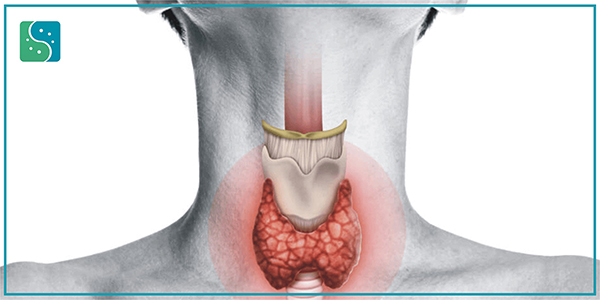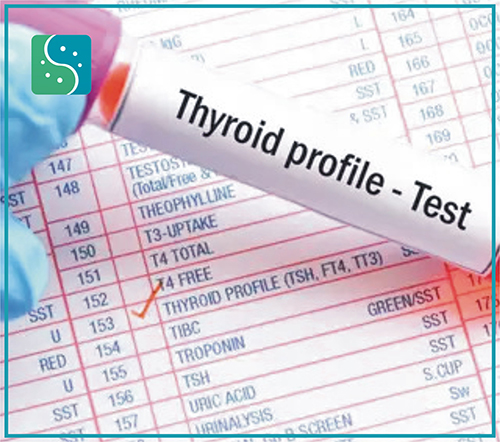HYPERTHYROIDISM is a medical condition in which the thyroid gland is overactive and produces thyroid hormones in excess. The main cause of hyperthyroidism is Grave’s Disease. Grave’s Disease is an autoimmune disorder in which the antibodies are produced by the immune system against its own tissue and attack the thyroid gland, resulting in excessive production of thyroid hormones.
Homoeopathy thyroid treatment stimulates the immune system and promotes the natural production of thyroid hormones, resulting in better thyroid gland function. By encouraging hormones secretions, homoeopathic remedies can effectively treat hyperthyroidism without any side effects.
Hyperthyroidism being constitutional disorder calls for an in-depth constitutional approach for its management. The science of homoeopathy is based on the concept that disease is a total affliction of body and may find its local expression at the level of certain organs. Hence homoeopathic prescription takes into account presenting complaints along with physical, emotional and genetic make-up of a person that individualizes him/her. The remedy prescribed based on this entire totality treats the disorder at its root cause and thus restores the normal functioning of the body.
Homoeopathy works better in the early and mild case of hyperthyroidism and not in chronic and severe cases. Extreme cases where the hyperactivity of thyroid gland has affected other vital organs, homoeopathy has a limited role.
The thyroid gland is a small, butterfly-shaped organ located in the front of your neck just under the voice box (larynx). Picture the middle of the butterfly’s body centred on your neck, with the wings hugging around your windpipe (trachea). The main job of the thyroid is to control your metabolism. Metabolism is the process that your body uses to transform food to energy your body uses to function. The thyroid creates the hormones T4 (thyroxine) and T3 (triiodothyronine) to control your metabolism. These hormones work throughout the body to tell the bodies cells how much energy to use. They control your body temperature and heart rate.

When your thyroid works correctly, it’s constantly making hormones, releasing them and then making new hormones to replace what’s been used. This keeps your metabolism functioning and all of your body’s systems in check. The amount of thyroid hormones in the bloodstream is controlled by the pituitary gland, which is located in the center of the skull below the brain. When the pituitary gland senses either a lack of thyroid hormone or too much, it adjusts its own hormone (thyroid stimulating hormone, or TSH) and sends it to the thyroid to balance out the amounts.
If the amount of thyroid hormones is too high (hyperthyroidism) or too low (hypothyroidism), the entire body is impacted.
There are many symptoms of hyperthyroidism, and they can impact your entire body. You may experience some of these symptoms and not others, or many of them at the same time. Symptoms of hyperthyroidism can include.
Medical conditions and situations that can cause hyperthyroidism include.

Your doctor can diagnose hyperthyroidism in several ways, including.
Hyperthyroidism can impact many parts of your body. Different systems, ranging from your vascular system (heart) to your skeletal system (bones) can all be affected if you have an overactive thyroid.
Complications from untreated or undertreated hyperthyroidism include:
Thyroid storm (thyroid crisis or thyrotoxic crisis) is a rare but serious complication of hyperthyroidism. It happens when your thyroid makes and releases a large amount of thyroid hormone in a short amount of time. Thyroid storm is a life-threatening emergency that requires immediate medical attention.
Symptoms of thyroid storm include:
A complication of Graves’ disease, one of the causes of hyperthyroidism, is called Graves’ eye disease (Graves’ ophthalmopathy). This condition can usually not be prevented. Graves’ eye disease can cause the following complications:
Hyperthyroidism and hypothyroidism are medical conditions that both have to do with the amount of thyroid hormone your thyroid makes and releases — the difference is how much.
Picture something related to the word “hyper.” Most likely, you just thought of something fast or full of a lot of energy. When you have hyperthyroidism, your thyroid is overactive and produces and releases too much thyroid hormone.
n the medical world, the prefix “hypo-” means “low” or “not enough.” When you have hypothyroidism, your thyroid is underactive and doesn’t make and release enough thyroid hormone that your body needs.
Hyperthyroidism is relatively rare.
One of the symptoms of hyperthyroidism can be irregular menstrual cycles (periods), which can make it difficult to get pregnant. Some people actually start reaching out to their healthcare provider because of issues becoming pregnant and then learn about a thyroid condition.
Eating too many iodine-rich or iodine-fortified foods in your diet may cause hyperthyroidism or make it worse in some cases.
Seafood has the most iodine. Just 1 gram of seaweed contains 23.2 micrograms (mcg), or .02 milligrams (mg).
Other foods have high amounts of iodine, including milk and dairy products, cheese, egg yolks, iodized salts.
Hyperthyroidism is a manageable and treatable condition. If you’re experiencing symptoms of hyperthyroidism or have certain risk factors, such as a family history of Graves’ disease, be sure to contact a doctor. They can have you undergo some simple tests to see if your thyroid is making too much thyroid hormone. Homoeopathy is certainly useful in early and mild cases of hyperthyroidism. For severe or chronic form of hyperthyroidism homoeopathy has a limited role. Homoeopathy is based on the principle of individualisation and symptom similarity by using holistic approach. For individualized remedy selection and treatment, the patient should consult a qualified homoeopathic doctor in person.